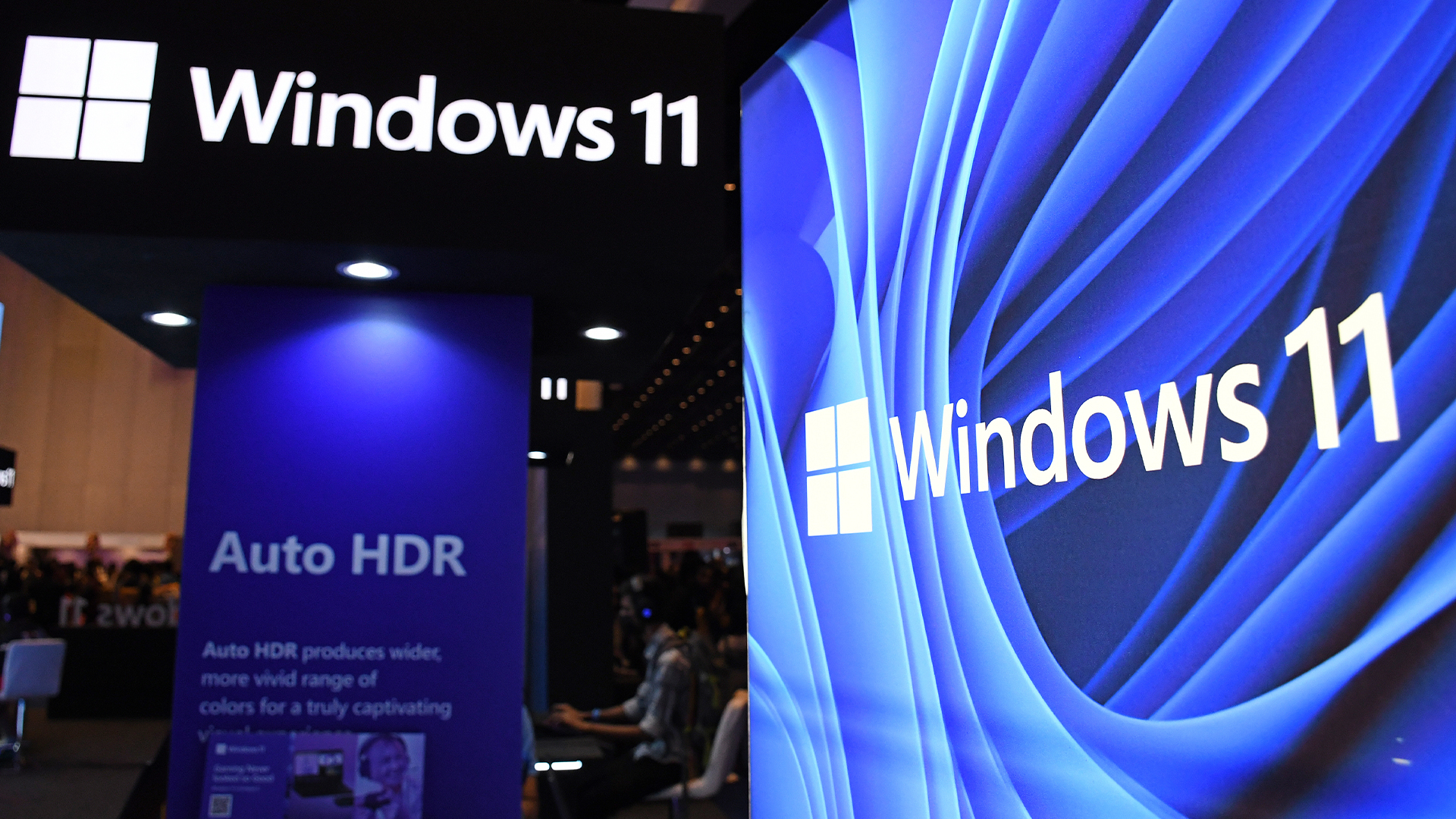Microsoft's huge AI spending has investors worried – now the company is changing its financial reporting to highlight successes
The move comes as investors want more evidence that Microsoft’s AI investment will pay off


Microsoft is reorganizing its results to better highlight AI gains in its business as investors keep a close watch on the costs of rolling out the technology.
Last month, Microsoft posted its full year results, with revenue up 16% to more than $245 billion — but capital spending, largely on AI and cloud, also climbed by a whopping 77% to $19 billion in the fourth quarter alone.
Many were watching to see the impact of AI spending on its bottom line, in particular whether the technology was as yet contributing much to revenue.
Microsoft broke that down in detail in an earnings conference call, specifying that eight points of Azure's 29% growth was from AI services, for example.
Now, Microsoft is looking to clarify its results to highlight how AI is contributing to its various lines of business.
Microsoft reporting changes look to calm confusion
The key change, according to Microsoft in a slide deck posted to its investor relations site, is that revenue from commercial components of Microsoft 365 – notably Enterprise Mobility and security (previously in Azure) and Windows commercial products – will be included in the Productivity and Business Processes (PBP) segment.
Beyond lumping the segments together based on how they are managed, it means the Microsoft 356 aspects will now be reported in SEC filings, too.
Sign up today and you will receive a free copy of our Future Focus 2025 report - the leading guidance on AI, cybersecurity and other IT challenges as per 700+ senior executives
Additionally, Copilot Pro is being removed from Office Consumer to Search and news advertising, while the AI and speech recognition unit Nuance is shifting out of Server to the PBP segment. Windows revenue and devices revenue will be lumped together in SEC filings to highlight PC market-driven areas of the business. Meanwhile, some search revenue will shift to Azure.
Such detail may sound like something for accountants to ponder, and Microsoft itself said the purpose was to align reporting to reflect how the business is managed. But the move follows criticism that Microsoft wasn't being clear enough about its AI revenue — despite it being one of a few companies to actually break out the figure, according to Reuters.
Microsoft restated aspects of its last round of full year results under the new system, showing Microsoft 365 Commercial cloud revenue growth was up 18%, Azure and other cloud services revenue growth were up 33% rather than the 30% previously reported.
Similarly, search and advertising revenue were up 9% versus 12% previously while Windows OEM and Devices revenue growth was flat.
Investor worries
After the last round of results, analysts criticized Microsoft for not being clear enough with how the billions it was spending on AI would eventually pay off. At the time, Forrester principal analyst Lee Sustar told ITPro that the numbers were positive but lacked clarity — specifically around AI.
"Investors and customers wondering whether Microsoft's AI offerings are still hauling in revenue got some assurance amid lingering questions following the company's quarterly earnings," Sustar said.
"The company's 20% growth in its Intelligent Cloud earnings resulted in quarterly revenue of $28.5 billion. However, that segment includes both the Azure cloud as well as other properties, so there are no specific numbers to back Microsoft's claim that 'Azure and other cloud services' grew 29 percent."
"Given Microsoft's record in recent years, Wall Street hasn't much cared that precise Azure numbers aren't disclosed," Sustar continued.
RELATED WHITEPAPER

"However, the company noted that operating expenses for Intelligent Cloud grew 5% compared to the same period a year earlier due to the scale-out of AI infrastructure in Azure. Investors and Azure customers will be keeping an eye on that trend as an indicator of AI market success for Microsoft and the cloud providers generally."
The new format of reporting looks to address such complaints, at least in part.
More widely, investors are looking to companies for proof that AI is capable of benefiting bottom lines, rather than just expanding costs. The day after the company posted its most recent results, Microsoft's share price fell about 7 per cent, with Barron's pinning the blame on Microsoft saying AI investment would take a long time to pay off.
Freelance journalist Nicole Kobie first started writing for ITPro in 2007, with bylines in New Scientist, Wired, PC Pro and many more.
Nicole the author of a book about the history of technology, The Long History of the Future.
-
 Hackers are using LLMs to generate malicious JavaScript in real time
Hackers are using LLMs to generate malicious JavaScript in real timeNews Defenders advised to use runtime behavioral analysis to detect and block malicious activity at the point of execution, directly within the browser
-
 Developers in India are "catching up fast" on AI-generated coding
Developers in India are "catching up fast" on AI-generated codingNews Developers in the United States are leading the world in AI coding practices, at least for now
-
 Not keen on Microsoft Copilot? Don’t worry, your admins can now uninstall it – but only if you've not used it within 28 days
Not keen on Microsoft Copilot? Don’t worry, your admins can now uninstall it – but only if you've not used it within 28 daysNews The latest Windows 11 Insider Preview will include a policy for removing the app entirely — but only in certain conditions
-
 Microsoft is shaking up GitHub in preparation for a battle with AI coding rivals
Microsoft is shaking up GitHub in preparation for a battle with AI coding rivalsNews The tech giant is bracing itself for a looming battle in the AI coding space
-
 ‘1 engineer, 1 month, 1 million lines of code’: Microsoft wants to replace C and C++ code with Rust by 2030 – but a senior engineer insists the company has no plans on using AI to rewrite Windows source code
‘1 engineer, 1 month, 1 million lines of code’: Microsoft wants to replace C and C++ code with Rust by 2030 – but a senior engineer insists the company has no plans on using AI to rewrite Windows source codeNews Windows won’t be rewritten in Rust using AI, according to a senior Microsoft engineer, but the company still has bold plans for embracing the popular programming language
-
 Microsoft Excel is still alive and kicking at 40 – and it's surging in popularity as 82% of finance professionals report ‘emotional attachment’ to the spreadsheet software
Microsoft Excel is still alive and kicking at 40 – and it's surging in popularity as 82% of finance professionals report ‘emotional attachment’ to the spreadsheet softwareNews A recent survey found Gen Z and Millennial finance professionals have a strong “emotional attachment” to Microsoft Excel
-
 Microsoft’s Windows chief wants to turn the operating system into an ‘agentic OS' – users just want reliability and better performance
Microsoft’s Windows chief wants to turn the operating system into an ‘agentic OS' – users just want reliability and better performanceNews While Microsoft touts an AI-powered future for Windows, users want the tech giant to get back to basics
-
 Microsoft 365 price hikes have landed the tech giant in hot water
Microsoft 365 price hikes have landed the tech giant in hot waterNews Australian regulators have filed a lawsuit against Microsoft for allegedly misleading users over Microsoft 365 pricing changes.
-
 Microsoft issues fix for Windows 11 update that bricked mouse and keyboard controls in recovery environment – here's what you need to know
Microsoft issues fix for Windows 11 update that bricked mouse and keyboard controls in recovery environment – here's what you need to knowNews Yet another Windows 11 update has caused chaos for users
-
 Windows 10 end of life could create a major e-waste problem
Windows 10 end of life could create a major e-waste problemNews The study marks the latest Windows 10 end of life e-waste warning
